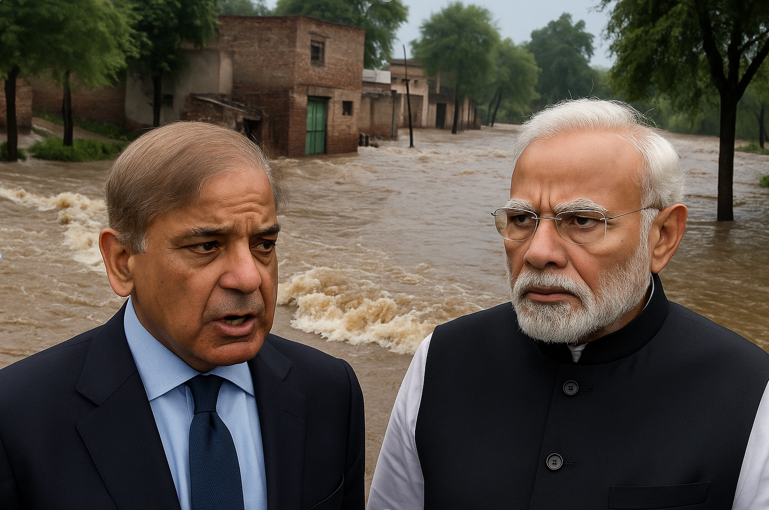Islamabad Raises Concerns Over Limited Information
ISLAMABAD: Pakistan has strongly criticized India for failing to share comprehensive flood-related data under the Indus Waters Treaty (IWT), following the devastating Punjab floods 2025 that have left over 900 people dead.
The Foreign Office (FO) on Friday stated that the information provided by India through diplomatic channels was “limited” compared to previous years. Officials said New Delhi bypassed the Indus Water Commissioner, undermining the treaty’s mechanism for cooperation.
Indus Waters Treaty Obligations
The Indus Waters Treaty, signed in 1960 and mediated by the World Bank, governs water distribution between the two countries. It requires India to alert Pakistan of potential flooding on rivers flowing into Pakistan, including the Indus, Jhelum, and Chenab.
FO Spokesperson Shafqat Ali Khan urged India to fully comply with all clauses of the agreement, stressing that communication through proper IWT channels is crucial for flood preparedness.

Punjab Floods Claim 905 Lives
According to the National Disaster Management Authority (NDMA), the monsoon floods in Punjab have claimed 905 lives since late June 2025. Over 1,400 villages have been submerged, displacing more than one million people.
The Chenab River overflowed after India opened major dam gates, inundating agricultural land and forcing families to seek shelter on rooftops and makeshift camps. Authorities now warn of a possible “super flood” in Sindh as torrents move downstream.
India’s Suspension of IWT Participation
Tensions escalated after India suspended participation in the IWT, citing security concerns in Indian Illegally Occupied Jammu and Kashmir (IIOJK). Pakistan rejected the accusations, and hostilities between the two nuclear-armed nations worsened until a recent ceasefire agreement.
In June 2025, the Permanent Court of Arbitration ruled that India cannot unilaterally suspend or terminate the treaty. The court reaffirmed that the treaty remains legally binding on both nations.

What is the Indus Waters Treaty?
The Indus Waters Treaty (1960) divides river rights between India and Pakistan. India controls water from the eastern rivers — Ravi, Sutlej, and Beas — while Pakistan has rights over the western rivers — Indus, Jhelum, and Chenab.
The treaty also includes detailed dispute resolution mechanisms and does not allow either country to withdraw unilaterally. Despite political and military tensions, it has remained one of the most enduring water-sharing agreements in the world.
Pakistan’s Call for Compliance
Pakistan has reiterated its demand that India honor the Indus Waters Treaty in both letter and spirit, ensuring timely sharing of flood data to prevent humanitarian and agricultural disasters. Officials emphasized that water cooperation is vital for regional stability and climate resilience.




